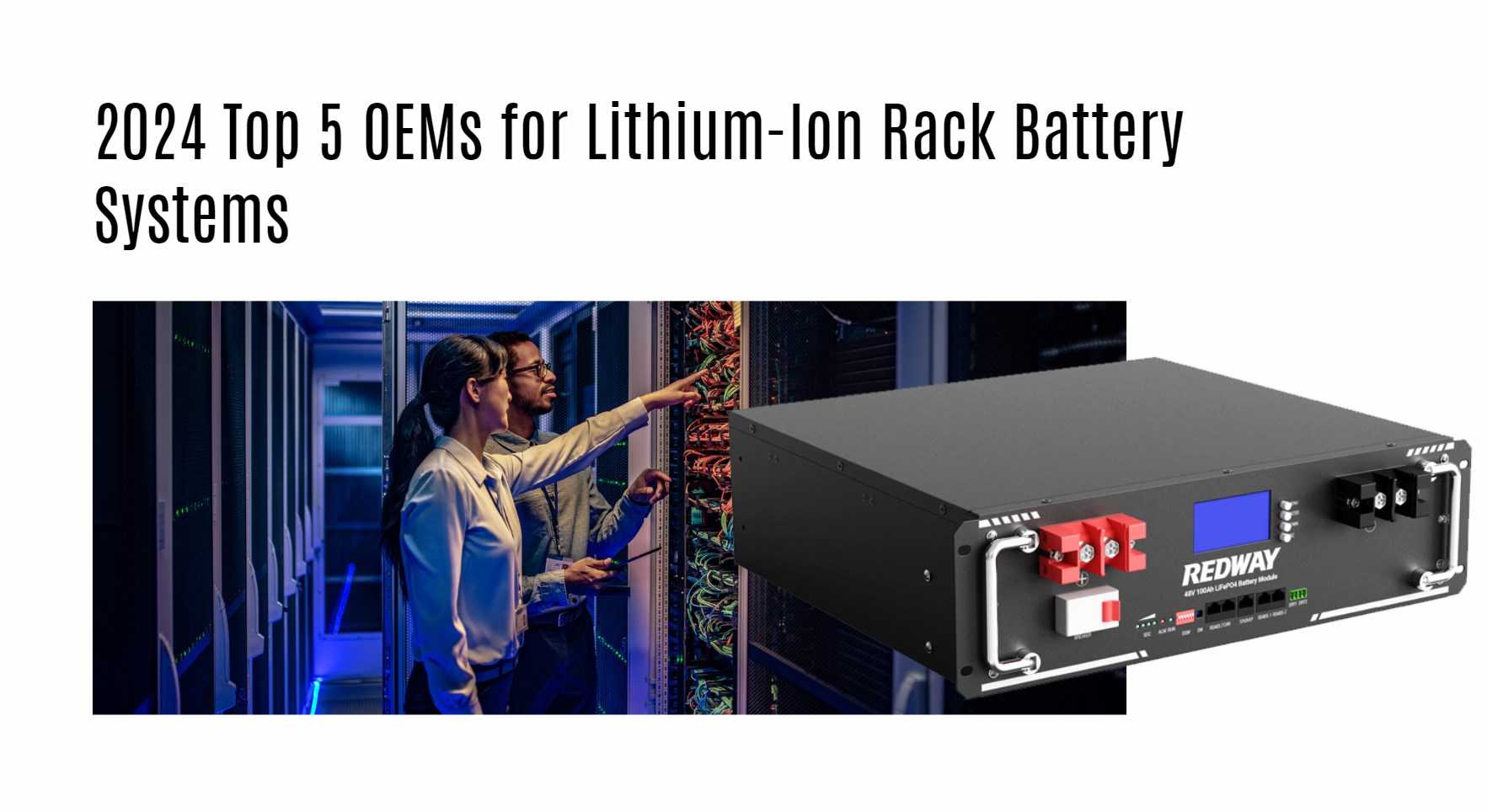In 2024, the top 5 OEMs for Lithium-Ion Rack Battery Systems were Tesla, LG Chem, BYD, ESS Inc., and Redway. Tesla’s Powerpack and Megapack offer high performance but are pricey. LG Chem provides affordable options with high energy density. BYD offers reliable systems with long warranties. ESS Inc. specializes in iron flow batteries, while Redway offers customized LiFePO4 modules. These manufacturers are known for their expertise in producing high-quality lithium-ion rack battery systems. They offer reliable and efficient solutions for various applications, including energy storage and backup power.
2024 Top 5 OEMs for Lithium Rack Batteries
Lithium-ion rack battery systems are becoming increasingly popular as a reliable and efficient source of energy storage for commercial and industrial applications. With many OEMs (original equipment manufacturers) on the market, it can be challenging to decide which one to choose. In this article, we’ll take a comprehensive look at the top five lithium-ion rack battery system OEMs, including Redway, a custom LiFePO4 battery module manufacturer, to help you make an informed decision.
Tesla
Tesla is a well-known brand in the energy storage industry, with its Powerpack and Megapack lithium-ion rack battery systems being widely used in commercial and industrial applications. The Powerpack has a capacity of up to 210 kWh, while the Megapack can store up to 3 MWh of energy. Tesla’s battery systems have a reputation for high performance and reliability, but they can be quite expensive.
Wholesale lithium golf cart batteries with 10-year life? Check here.
LG Chem
LG Chem is a South Korean company that produces a range of lithium-ion batteries, including those used in rack battery systems. The company’s RESU systems have a capacity range of 3.3 kWh to 19.6 kWh and are known for their high energy density, long cycle life, and safety features. LG Chem’s battery systems are also relatively affordable compared to some of its competitors.
BYD
BYD is a Chinese company that produces a range of lithium-ion batteries and energy storage systems. The company’s B-Box systems have a capacity range of 2.5 kWh to 442 kWh and are designed for use in residential, commercial, and industrial applications. BYD’s battery systems have a reputation for reliability and safety and are backed by a 10-year warranty.
Want OEM lithium forklift batteries at wholesale prices? Check here.
ESS Inc.
ESS Inc. is a US-based company that produces iron flow batteries, which are similar to Redflow’s flow batteries. The company’s Energy Warehouse system has a capacity range of 50 kWh to 500 kWh and is designed for use in commercial and industrial applications. ESS Inc.’s battery systems are known for their long cycle life, low maintenance requirements, and ability to perform in extreme temperature conditions.
Redway
Redway is a custom manufacturer of LiFePO4 battery module, a type of rechargeable battery, offering tailored solutions to fit specific energy storage needs. The company’s LiFePO4 battery modules are designed to provide high-performance, safety, and long lifespan for various applications, including grid, solar, telecom, and transportation. Redway offers customized battery management systems to optimize the performance and efficiency of the battery system.
Conclusion
Each of these lithium-ion rack battery system OEMs has its strengths and weaknesses. Tesla offers high-performance and reliability but can be expensive, while LG Chem and BYD offer relatively affordable and safe systems. Redflow and ESS Inc. offer unique flow battery technology, and Redway offers customized LiFePO4 battery modules with tailored battery management systems. Choosing the right OEM depends on specific application requirements, budget, and performance expectations. Consulting with a reputable battery system provider, such as Redway, can help you select the most suitable and efficient energy storage solution for your specific needs.







